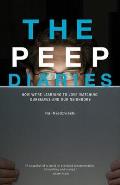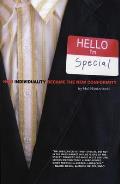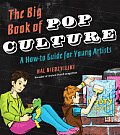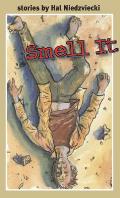
In my new book,
The Peep Diaries: How We're Learning to Love Watching Ourselves and Our Neighbors, I make the following argument: today, we have less privacy than any people ever before us
and more privacy than any people ever before us. Since the book has been written, the recession has landed like a tornado, tossing aside people and homes as if they were toys, and exposing just how dangerous this current and very confusing approach to "privacy" really is. So I thought I'd update the line of thinking I pursue at greater length in the book by looking at exactly what the current financial crisis is telling us about the contradictory state of privacy in 21st-century America.
For most of human existence, we had zero privacy. Did we even want privacy? Did we yearn for alone-time in our caves, long houses, and villages? Probably not, largely because we had other things to worry about like famine, hungry predators, and that rival tribe across the river. But gradually, ideas around privacy started to surface.
In 1604, the English court famously ruled that a "man's house is his castle." In Seymayne's Case, the court writes:
The house of every one is to him as his castle and fortress, as well as for his defence against injury and violence, as for his repose; and although the life of a man is a thing precious and favored in law;...if thieves come to a man's house to rob him, or murder, and the owner or his servants kill any of the thieves in defence of himself and his house, it is not felony, and he shall lose nothing.
For those allowed by law to own property ? white Christian males, that is ? owning stuff now ensured privacy. Almost 200 years later, the American Congress passed the Bill of Rights (1791) which amended the Constitution and promised that "the right of the people to be secure in their...houses...against unreasonable searches and seizures shall not be violated."
 Western society was in the midst of inventing and legalizing privacy. But it was a very particular kind of privacy, a privacy centered around possessions. If you had a house or an apartment or a tent pitched on your own patch of land, well, then, it was yours and we couldn't just bust in. If you lived in a cardboard box across the street from the White House, you were fair game.
Western society was in the midst of inventing and legalizing privacy. But it was a very particular kind of privacy, a privacy centered around possessions. If you had a house or an apartment or a tent pitched on your own patch of land, well, then, it was yours and we couldn't just bust in. If you lived in a cardboard box across the street from the White House, you were fair game.
Privacy becomes intertwined with the rise of a middle class fueled by the invention of electricity and the subsequent industrial revolution of mass production. After all, people aren't going to embrace capitalism and all it has to offer if their biggest ticket items ? houses and, eventually, cars ? are subject to random search and seizure by the king's cronies.
Put privacy in the law books, and suddenly everyone wants the suburban dream ? a big house, a giant screen TV, an alarm system, an electrified fence, and an SUV with tinted windows to drive the kids to (private) school in.
And so we come to the present day: a paradise of single-family dwellings that offers, if nothing else, the most privacy people have ever had in their lives.
Now I also claim in The Peep Diaries that we have less privacy than ever. How is that possible if our privacy is enshrined in the Bill of Rights and, indeed, in a concept so fundamental to Western thought it even has its own slogan ? "A man's home is his castle"?
Well, as time went on, more and more of us were convinced that we needed privacy to be happy. And since privacy meant owning our houses, more and more of us wanted houses. Our financial institutions, sensing this demand, realized they could make a lot of money "helping" people achieve their dream of home ownership. They put all kinds of excellent schemes in place and made billions of dollars lending people money to buy privacy. They said, "Here, take this money and buy your house and car and alarm system and giant TV, and pay us back later. Go ahead, take it."
 And we did. But there was a catch. Well, there were a lot of catches. But where privacy was concerned, in order to get our loans from the bank, we had to let the bank find out pretty much everything there was to find out about us. We had to agree to have our entire financial history scrutinized over and over again by credit rating agencies, bank employees, insurance agents, the car dealership, Visa, AmEx, Discover, MasterCard, and just about anyone else who offered to help us get what we thought we wanted.
And we did. But there was a catch. Well, there were a lot of catches. But where privacy was concerned, in order to get our loans from the bank, we had to let the bank find out pretty much everything there was to find out about us. We had to agree to have our entire financial history scrutinized over and over again by credit rating agencies, bank employees, insurance agents, the car dealership, Visa, AmEx, Discover, MasterCard, and just about anyone else who offered to help us get what we thought we wanted.
We got the house and the car, but many detailed aspects of our lives ? what we bought, how and if we paid for what we bought, and what we were likely to buy in the future, were now all just a few clicks of the mouse away.
Suddenly, the homeless person sleeping rough across from the White House actually has more privacy.
So then, along comes 2009 and the biggest financial crisis since the Great Depression. What's the cause of this financial crisis? Well, at least in part, we can connect all this to our relatively recent concept of privacy. How so? We've been told repeatedly for at least a few hundred years that the more stuff we have ? land, possessions, etc. ? the more privacy we are entitled to. So naturally we've sought to have the most stuff on the largest expanse of land. The various financial institutions assisted us in this by offering to help us buy more and more and more, so long as they could know more and more about us. It got to the point where they knew so much about us, they knew the best way to sucker us into buying more and more things we couldn't afford ? like, for instance, bigger, more private houses made weirdly affordable by too-good-to-be-true mortgage rates.
 The more the banks knew, the more they could tell each other about us, and the more they helped us attain the ideal of lots and lots of privacy.
The more the banks knew, the more they could tell each other about us, and the more they helped us attain the ideal of lots and lots of privacy.
But then the whole scheme collapsed. Our yearning for that ultimate symbol of success ? exclusion ? got the better of us. We bought too much privacy and found ourselves not just up to our necks in debt, but lonely and isolated as well. Meanwhile, the plan to endlessly cash in on our newly discovered yearning for alone-time got the better of the banks ? they ended up knowing too much about us; they were able to manipulate us with such ease and success that they ended up bleeding us dry.
So what are we left with? Well, for one thing, we're left with the realization that privacy as we understand it today is pretty much a fantasy. Having a house and a car and a tall fence does not earn us the right to privacy. In fact, the more we have, the more we've spent, and the more they know about us.
Today, we have the chance to revisit the whole idea of privacy as fundamentally related to the acquisition of stuff. Our castles are on fire. Bankers and their customers are forced out into the streets. Blinking through the smoke and bright sunshine, for the first time in a long time, we see each other, standing together.